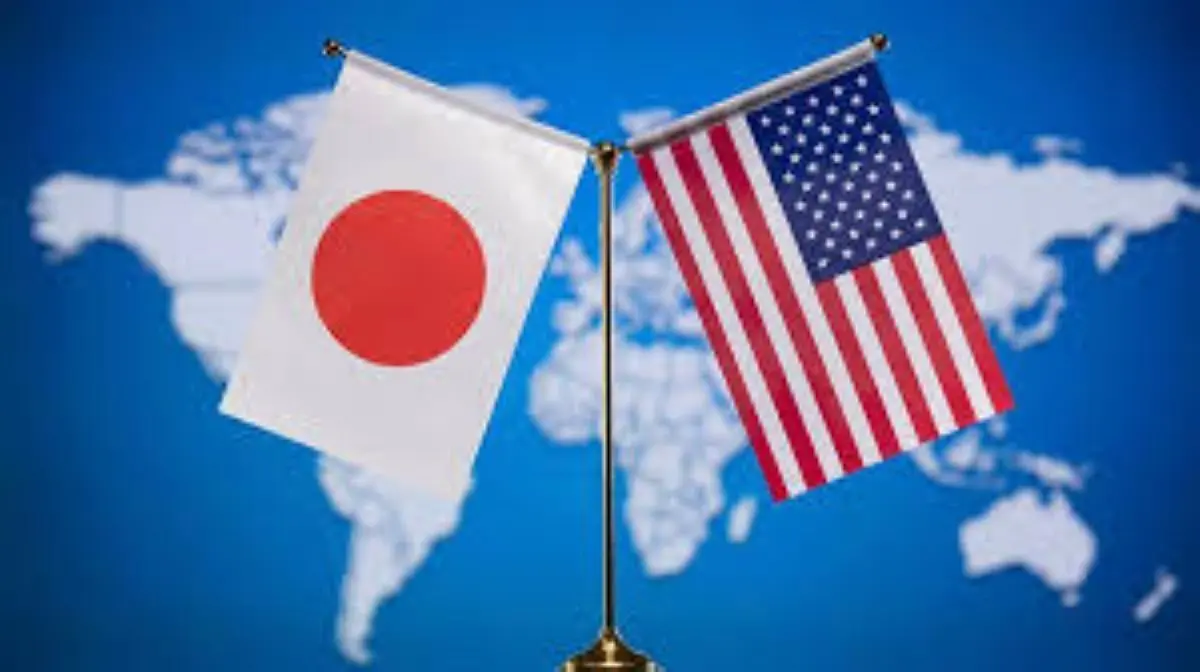Önemli bir gelişme olarak, Japonya ve Amerika Birleşik Devletleri arasında yapılan son ticaret anlaşması, lojistik ve taşımacılık camiasında kaşların kalkmasına neden oldu. Ağustos son tarihinden sadece bir hafta önce tamamlanan bu anlaşma, uluslararası ticaret alanlarını yeniden şekillendirebilecek değişikliklerin habercisi.
Anlaşma Dökümü
ABD yönetimi tarafından öncülük edilen ticaret anlaşması, yeni bir tarife oranı belirliyor 15% Japon ithalatına ilişkin. Bu, daha önce tehdit edilen oranlardan takdire şayan bir indirimdir 25% - 27.5%. Buna karşılık Japonya, muazzam bir yatırım yapma sözü verdi ₺50 milyar ABD ekonomisine girmek ve otomotiv ürünleri ve pirinç gibi tarım ürünleri de dahil olmak üzere çeşitli mallara yönelik pazarlarını daha da açmak.
Japon Üreticiler İçin Etkileri
Japon üreticiler, özellikle otomotiv sektöründe, bu anlaşma taze bir nefes niteliğinde olup, Japonya'nın Amerika Birleşik Devletleri'ne olan ihracat hacminin dörtte birinden fazlasını barındıran bir pazardaki tarifelerin yükünü önemli ölçüde hafifletmektedir.
Borsanın ilk tepkisi olumlu oldu ve önemli otomotiv firmalarının hisselerinde gözle görülür bir artış yaşandı. Bu iyimserlik, bu anlaşmanın ticaret ilişkilerine getirdiği ve yalnızca tedarik zincirlerine fayda sağlayabilecek yeni istikrardan kaynaklanıyor.
Amerikan Otomobil Şirketleri İçin Dikkat Edilmesi Gerekenler
Ancak, her parlayan altın değildir. Amerikan otomotiv endüstrisi yeni anlaşmadan duyduğu memnuniyetsizliği dile getirdi. Şu anda, Kanada ve Meksika'dan ithal edilen araçlar 'lik bir gümrük tarifesiyle karşı karşıya olup, bu da bu şirketleri Japon rakiplerine kıyasla dezavantajlı bir duruma sokmaktadır. Amerikan Otomotiv Politikası Konseyi başkanı Matt Blunt'un belirttiği gibi, bu durum eşitsiz bir rekabet ortamı yaratabilir: "Japon ithalatına uygulanan daha düşük bir tarife, Kuzey Amerika'dan gelen yüksek ABD içerikli araçlara kıyasla minimum ABD içeriğine sahip olduğunda, endüstrimiz için yetersiz bir anlaşmadır."
| İthalat Tarifeleri Karşılaştırması | Mevcut Tarife Oranları | Yeni Tarife Oranları |
|---|---|---|
| Japon Araçları | 25% - 27.5% | 15% |
| Kanada ve Meksika Araçları | 25% | 25% |
Tarife Politikalarının Daha Geniş Etkisi
Analistler, ABD'nin tarife stratejilerinden kaynaklanan olumsuz sonuçların otomotiv sektörünün çok ötesine uzanabileceği konusunda uyarıyor. Citi ve Deutsche Bank gibi finans devlerinden gelen raporlar, birçok şirketin ek masrafları tüketicilere yansıtmak yerine üstlenmeyi tercih etmesi nedeniyle, ABD'li şirketlerin bu maliyetlerin yükünü taşıyabileceğini gösteriyor. Bu tarifelerin geniş kapsamlı etkileri, fiyatların yükselmeye başladığı ev eşyaları ve oyuncaklar gibi sektörlerde giderek daha belirgin hale geliyor.
Çin mallarına uygulanan tarifelerin artmasına rağmen 30%, ithalat fiyatları neredeyse hiç dalgalanmadı, bu da ABD'li ithalatçıların daha sıkı marjların alıcısı olduğunu gösteriyor.
İleriye Bakış: AB ve Diğer Zorluklar
Japonya-ABD anlaşması mürekkebi daha kurumadan, dikkatler şimdi Avrupa Birliği'ne yöneliyor. Karşılaştırılabilir bir düzenlemenin ufukta olabileceğine dair umut var; ancak gerginlikler devam ediyor. Avrupa Komisyonu, tarım ürünleri, havacılık ve tıbbi malzemeler dahil olmak üzere çeşitli sektörleri kapsayan, ABD mallarına yönelik 93 milyar Avro tutarında bir misilleme planı hazırlıyor. Potansiyel uyarısı 30% müzakerelerin başarısız olması durumunda AB ithalatına yönelik tarifeler büyük ölçüde artabilir.
Lojistik Ortamı
Bu inişli çıkışlı durum, uluslararası ticaretin değişken doğasını ve lojistik ve taşımacılık üzerindeki derin etkilerini güçlendiriyor. Tarifeler dalgalandıkça, şirketlerin navlun stratejilerini yeniden değerlendirerek, muhtemelen farklı tedarikçilere yönelerek veya maliyetleri azaltmak için nakliye rotalarını ayarlayarak uyum sağlamaları gerekecek.
Sektöre Özgü Analiz: Sağlık Hizmetleri Lojistiği
Bu endüstriyel değişimlerin ortasında, sağlık sektörü öne çıkıyor. Son zamanlarda, NYK Group'un Movianto'yu satın alma önerisi, özellikle birleşen kuruluşun Birleşik Krallık sağlık lojistiği pazarının yaklaşık 'ine hakim olacağı Avrupa'da yankı uyandırıyor. Bu birleşme, NYK Group'un Avrupa gelirlerini ikiye katlayarak 1.3 milyar €'ya çıkarmayı ve böylece konumunu güçlendirmeyi amaçlıyor.
Buradaki çıkarımlar, sağlık krizleri zamanlarında çok önemli olan tıbbi yük taşımacılığında iyileştirilmiş güvenilirliğe doğru ağır basmaktadır.
Sonuç
ABD ve Japonya arasındaki yeni ticari anlaşma, Japon üreticiler için bir iyimserlik dalgası getirirken, aynı anda Amerikan otomobil üreticilerini bir bataklığa sürüklüyor. Lojistik operasyonları için bu gelişme, tarifeler ve ticaret politikaları geliştikçe uyum yeteneğinin önemini vurguluyor. Bu dinamikleri yakından takip etmek, piyasada rekabet avantajını korumak için çok önemlidir.
Lojistik sağlayıcısı olarak GetTransport.com, kargo taşımacılığını basitleştirerek, işletmelerin ofis taşımalarından hacimli teslimatlara kadar her şey için uygun maliyetli çözümlerle ticaretin değişen gelgitlerinde gezinmelerine yardımcı olur. Şeffaf fiyatlandırmaları, işletmelerin gereksiz harcamalar olmadan gönderileri güvenle planlayabilmelerini sağlar. GetTransport.com ile sadece mal taşımıyorsunuz; küresel değişimlerin ortasında lojistik stratejinizi geliştiriyorsunuz. Kargo taşımacılığınızı bugün GetTransport.com ile ayırtın!

 Japonya ve ABD Arasındaki Yeni Bir Ticaret Anlaşması Lojistiği Nasıl Etkiler">
Japonya ve ABD Arasındaki Yeni Bir Ticaret Anlaşması Lojistiği Nasıl Etkiler">